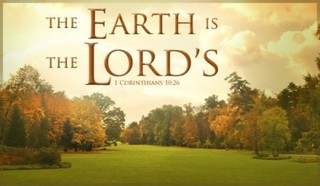- Recent Translations
- All Translations
Gēlínduōqiánshū 10
Share
Settings
Gēlínduōqiánshū 10 Commentary
Chapter 10
The great privileges, and yet terrible overthrow of the Israelites in the wilderness. (1-5) Cautions against all idolatrous, and other sinful practices. (6-14) The partaking in idolatry cannot exist with having communion with Christ. (15-22) All we do to be to the glory of God, and without offence to the consciences of others. (23-33)
Verses 1-5 To dissuade the Corinthians from communion with idolaters, and security in any sinful course, the apostle sets before them the example of the Jewish nation of old. They were, by a miracle, led through the Red Sea, where the pursuing Egyptians were drowned. It was to them a typical baptism. The manna on which they fed was a type of Christ crucified, the Bread which came down from heaven, which whoso eateth shall live for ever. Christ is the Rock on which the Christian church is built; and of the streams that issue therefrom, all believers drink, and are refreshed. It typified the sacred influences of the Holy Spirit, as given to believers through Christ. But let none presume upon their great privileges, or profession of the truth; these will not secure heavenly happiness.
Verses 6-14 Carnal desires gain strength by indulgence, therefore should be checked in their first rise. Let us fear the sins of Israel, if we would shun their plagues. And it is but just to fear, that such as tempt Christ, will be left by him in the power of the old serpent. Murmuring against God's disposals and commands, greatly provokes him. Nothing in Scripture is written in vain; and it is our wisdom and duty to learn from it. Others have fallen, and so may we. The Christian's security against sin is distrust of himself. God has not promised to keep us from falling, if we do not look to ourselves. To this word of caution, a word of comfort is added. Others have the like burdens, and the like temptations: what they bear up under, and break through, we may also. God is wise as well as faithful, and will make our burdens according to our strength. He knows what we can bear. He will make a way to escape; he will deliver either from the trial itself, or at least the mischief of it. We have full encouragement to flee from sin, and to be faithful to God. We cannot fall by temptation, if we cleave fast to him. Whether the world smiles or frowns, it is an enemy; but believers shall be strengthened to overcome it, with all its terrors and enticements. The fear of the Lord, put into their hearts, will be the great means of safety.
Verses 15-22 Did not the joining in the Lord's supper show a profession of faith in Christ crucified, and of adoring gratitude to him for his salvation ? Christians, by this ordinance, and the faith therein professed, were united as the grains of wheat in one loaf of bread, or as the members in the human body, seeing they were all united to Christ, and had fellowship with him and one another. This is confirmed from the Jewish worship and customs in sacrifice. The apostle applies this to feasting with idolaters. Eating food as part of a heathen sacrifice, was worshipping the idol to whom it was made, and having fellowship or communion with it; just as he who eats the Lord's supper, is accounted to partake in the Christian sacrifice, or as they who ate the Jewish sacrifices partook of what was offered on their altar. It was denying Christianity; for communion with Christ, and communion with devils, could never be had at once. If Christians venture into places, and join in sacrifices to the lust of the flesh, the lust of the eye, and the pride of life, they will provoke God.
Verses 23-33 There were cases wherein Christians might eat what had been offered to idols, without sin. Such as when the flesh was sold in the market as common food, for the priest to whom it had been given. But a Christian must not merely consider what is lawful, but what is expedient, and to edify others. Christianity by no means forbids the common offices of kindness, or allows uncourteous behaviour to any, however they may differ from us in religious sentiments or practices. But this is not to be understood of religious festivals, partaking in idolatrous worship. According to this advice of the apostle, Christians should take care not to use their liberty to the hurt of others, or to their own reproach. In eating and drinking, and in all we do, we should aim at the glory of God, at pleasing and honouring him. This is the great end of all religion, and directs us where express rules are wanting. A holy, peaceable, and benevolent spirit, will disarm the greatest enemies.
Gēlínduōqiánshū 10 Commentaries
Chapter Summary
INTRODUCTION TO 1 CORINTHIANS 10
In this chapter the apostle cautions the Corinthians against security on account of their gifts, knowledge, and profession, since men of great characters, and enjoying high privileges, have fallen into sin, and have been severely punished; and he particularly cautions against idolatry, and all appearances of it, on which account he again introduces the case of eating things offered to idols, and dissuades from it, when it tended to idolatry, and had the appearance of it; though in some cases he allows of eating them, but directs that all should be done to the glory of God, and without offence to any, as they had him for an example. And now, whereas in the latter part of the preceding chapter he had signified his jealousy of himself, lest he should be a castaway, he pursues the thought, and improves it to the use of the Corinthians, that they, on account of their high attainments, should not think themselves secure of all danger; and for this purpose sets before them the instances and examples of the Jewish fathers, of which he would not have them ignorant, who were persons that enjoyed great privileges, and were partakers of things which bore some resemblance to Gospel ordinances; as their passing under the cloud through the sea was a figure of baptism, and their eating manna, and drinking water out of the rock, which was a type of Christ, had some likeness to the ordinance of the Lord's supper, of eating his flesh, and drinking his blood, which are meat and drink indeed in a spiritual sense, 1Co 10:1-4 and yet all these persons that enjoyed these privileges were not acceptable to God; nor did they enter into the land of Canaan, but fell in the wilderness, 1Co 10:5 in which they were examples to men under the Gospel dispensation, that they may shun the evils which were the cause of their fall and overthrow, 1Co 10:6 particularly idolatry, of which their making and worshipping the golden calf is an instance, 1Co 10:7 also fornication, on account of which three and twenty thousand fell in one day, 1Co 10:8 likewise tempting Christ, which brought upon them destruction by the fiery serpents, 1Co 10:9 moreover, murmuring against God, and his servants, for which reason the destroyer was sent among them, and destroyed them, 1Co 10:10. All which happened, and are recorded for the use, instruction, and admonition of professors of religion in these last times, 1Co 10:11 from all which the apostle infers, by way of caution to the saints, that they should not be secure of standing, but take heed lest they fall, since so many and such great persons had before fallen, 1Co 10:12. But for their comfort, under afflictions, he observes, that as they were common to men, so the faithfulness of God was concerned to support them under them, and deliver them out of them, that they might not utterly fail of the grace of God, and perish by them, 1Co 10:13. And in order to their standing, he particularly dehorts them from idolatry, 1Co 10:14 and every appearance of it, as eating things offered to idols, in an idol's temple, which is what he has chiefly in view, as appears by the following verses: and whereas they were men of wisdom and judgment whom he addressed, he was the more encouraged to use the following arguments with them, the force of which they would understand, 1Co 10:15. And his first argument is taken from the Lord's supper, and the communion of his body and blood, which believers have with him in eating the bread, and drinking the wine; suggesting, that in like manner such who eat things offered to idols, as such, had communion with them, and so were guilty of idolatry, and therefore should be abstained from, 1Co 10:16. His next argument is taken from the union and communion which saints have one with another at the Lord's table, whereby they appear to be one body and one bread; and so such that associate themselves with idolaters in their temples, and eat with them things offered to idols, are one with them in a like sense, and chargeable with idolatry, 1Co 10:17. To which is added a third, taken from the priests of the Israelitish nation, who eating of the sacrifices, were partakers of the altar, worshipped the God of Israel, and had communion with him; and so in like manner eating of the sacrifices offered to idols, and especially in one of their temples, might be very well interpreted a partaking of their altars, a worshipping of them, and so idolatry, 1Co 10:18 not that he thought that an idol was to be considered as a deity, or that things offered to it were upon an equal foot with the Lord's supper, or Jewish sacrifices, 1Co 10:19 but as there was a communion in the one, so in the other; for as for the sacrifices of the Gentiles, they were offered to devils, and not to God; and which he mentions to deter them from having the most distant regard to such sacrifices, 1Co 10:20 it being the most inconsistent, as well as shocking thing in the world, to partake of both cups and tables, those of the Lord, and those of devils, 1Co 10:21 wherefore the apostle dissuades from such idolatrous practice, from the pernicious and dangerous consequences of them, stirring up the Lord to jealousy, fighting against him, and being destroyed of him, 1Co 10:22. But inasmuch as things offered to idols were in themselves indifferent, the apostle directs to a proper use of them; and observes, that though they might be lawfully eaten, yet the expediency of time and place, and the edification of others, ought to be considered, 1Co 10:23 for we are not to seek our own pleasure, but the welfare of others, 1Co 10:24. If indeed such meat is sold in the butchers' meat markets in common with others, it may be bought and eat, when no questions are asked about it, what it is, 1Co 10:25 and that for this reason, because the earth, and all that is in it, are the Lord's, and his people have a right to all through him, and therefore may make use of every creature in it, 1Co 10:26. So if an idolater invites a believer to dine with him, and he accepts the invitation, he may very lawfully eat whatever is before him, even though it be meat offered to idols, provided he asks no questions about it, 1Co 10:27. But should anyone present point at certain meat, and say that was offered to idols, then it was advisable not to eat of it; partly for the sake of the unbeliever that pointed at it, who would be hardened in his idolatry by it; and partly for the sake of the conscience of a weak believer present, who might be offended at it; and the reason given to enforce such a conduct is, because there is plenty of other food without it, 1Co 10:28. And then the apostle explains whose conscience he meant; not the conscience of him that is invited, but either of the unbeliever, or the weak brother; and suggests a reason why he should not make use of his liberty in their presence, and under such circumstances, lest it should be censured and condemned, 1Co 10:29 or he be reproached for what he had, through good will, and had reason to be thankful for, 1Co 10:30 wherefore, upon the whole, the apostle advises in this affair, and in all others, to have the glory of God in view in the first place, 1Co 10:31 and next to that to be careful not to offend any sort of persons whatever, 1Co 10:32 and proposes himself as an example in these things to be followed; who sought not his own advantage, but the pleasure and profit of others, and to promote, as much as in him lay, their salvation, and not hinder it, 1Co 10:33.


